Turning a Dream into a Forever Company
Kirk Richardson
6 October 2018
Webco Industries Founder Bill Weber died on Sunday, September 9. He was 92. On regular occasion, Mr. Weber was still showing up to work at Webco’s Sand Springs, OK headquarters through the summer of 2018. He continued to be active in the company that he built, sharing wisdom with colleagues in his office just weeks before his death. The following article inspired by an earlier visit and subsequently Mr. Weber’s last media interview was written in August 2018.
Bill Weber sits behind a well-organized desk, folders and various reports neatly arranged in front of him. He is in his comfort zone, dressed in a warm maroon sweater in the office that has been his home-away-from-home for nearly 50 years. His little white Westie/dog and best friend, Sabrina, watches him as she is curled up on a guest chair. The founder and Chairman of the Board of Webco Industries still come into work every day that he can, even though the 92-year-old businessman has been fighting cancer for the past few years. Weber is not only an inspiration to his employees, but to those who know him here in Tulsa, Oklahoma and countless others in the industries that his company serves around the world. That admiration has been hard-earned, over many years. After serving his country in the United States Air Force, the World War II veteran started his career with a Pittsburgh-area gas utility company, then went to work for U.S. Steel in 1954. Weber spent the first nine months of that new career track immersed in the National Tube Division’s intensive training program. From there he transferred to U.S. Steel’s Automotive Group in Detroit, Michigan, then on to a Product Section Group back in Pittsburgh, Pennsylvania, and ultimately ended up in a Senior Sales position in Dallas, Texas. “I was in each of those places about a few years,” he recalls.
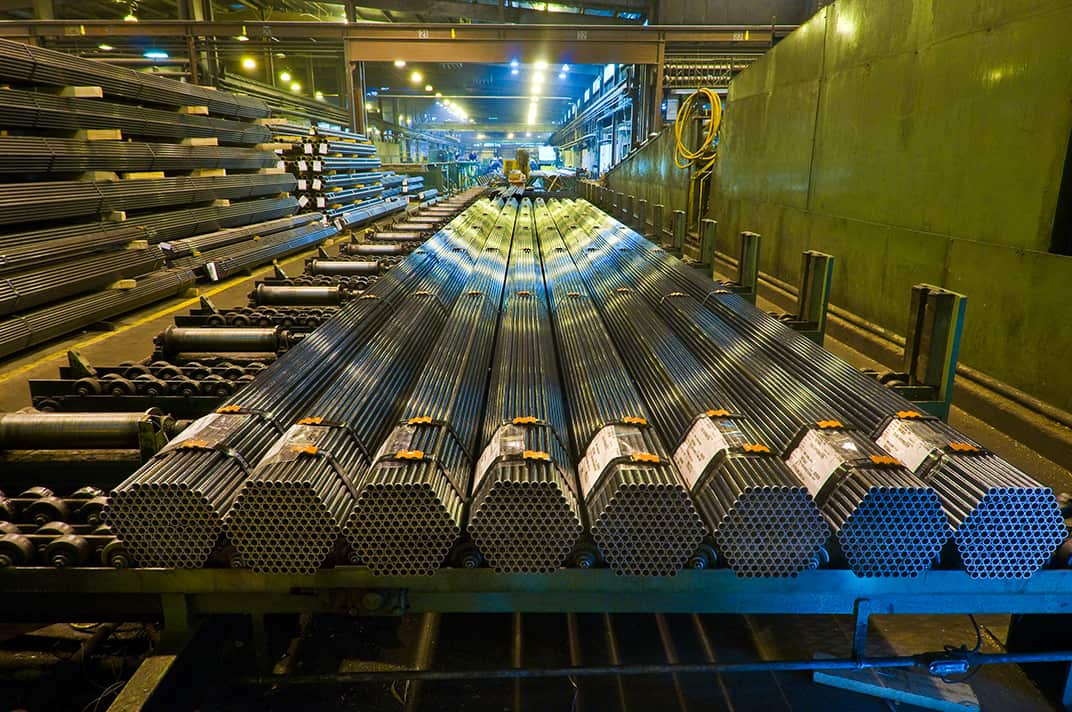
Spending much of his early career moving from job-to-job, location-to-location, with a wife and now three daughters in tow led Weber to consider settling down in one place for a while. That sparked an idea that made a pipe dream a real possibility. “Myself and two other people in operations talked about starting a new business in Tulsa, Oklahoma,” he remembers. “I said ‘You know, we can do this better.’ By now, Weber had the confidence, competence, and contacts that he needed to compete in the metal tubing business. He just needed to find the perfect location to turn his bold plans into a manufacturing plant; oh, and put together the financing to buy equipment and build a plant.
“I said ‘You know, we can do this better.'”
Back in the late 1960s when Weber first entertained the thought of starting his own company 250 miles due north of Dallas in Northeast Oklahoma, Tulsa was nicknamed The Oil Capital of the World. That didn’t deter him. “First of all, there was a worker base here,” explains Weber. “But they were all oil-field oriented. If it didn’t flow oil, what do you want to do with it?” he shrugs his shoulders and smiles. For an industrious mind like Weber’s, that just meant they would require some time for retraining. In addition to having a very capable, hardworking labor pool, the heat exchanger industry was also centered in Tulsa. “The whole industry was focused in Tulsa and in Houston,” he continues. “Tulsa was the main builder of the equipment.” However, most of the mill products that were used to fabricate those heat exchangers, including mountains of carbon steel tubing, had to be shipped in by truck or rail. Weber saw a big opportunity. “Over the road trucking and train travel was dangerous and expensive, and damages could make it very costly,” he points out. “If we could eliminate that, we had cheap steel.”
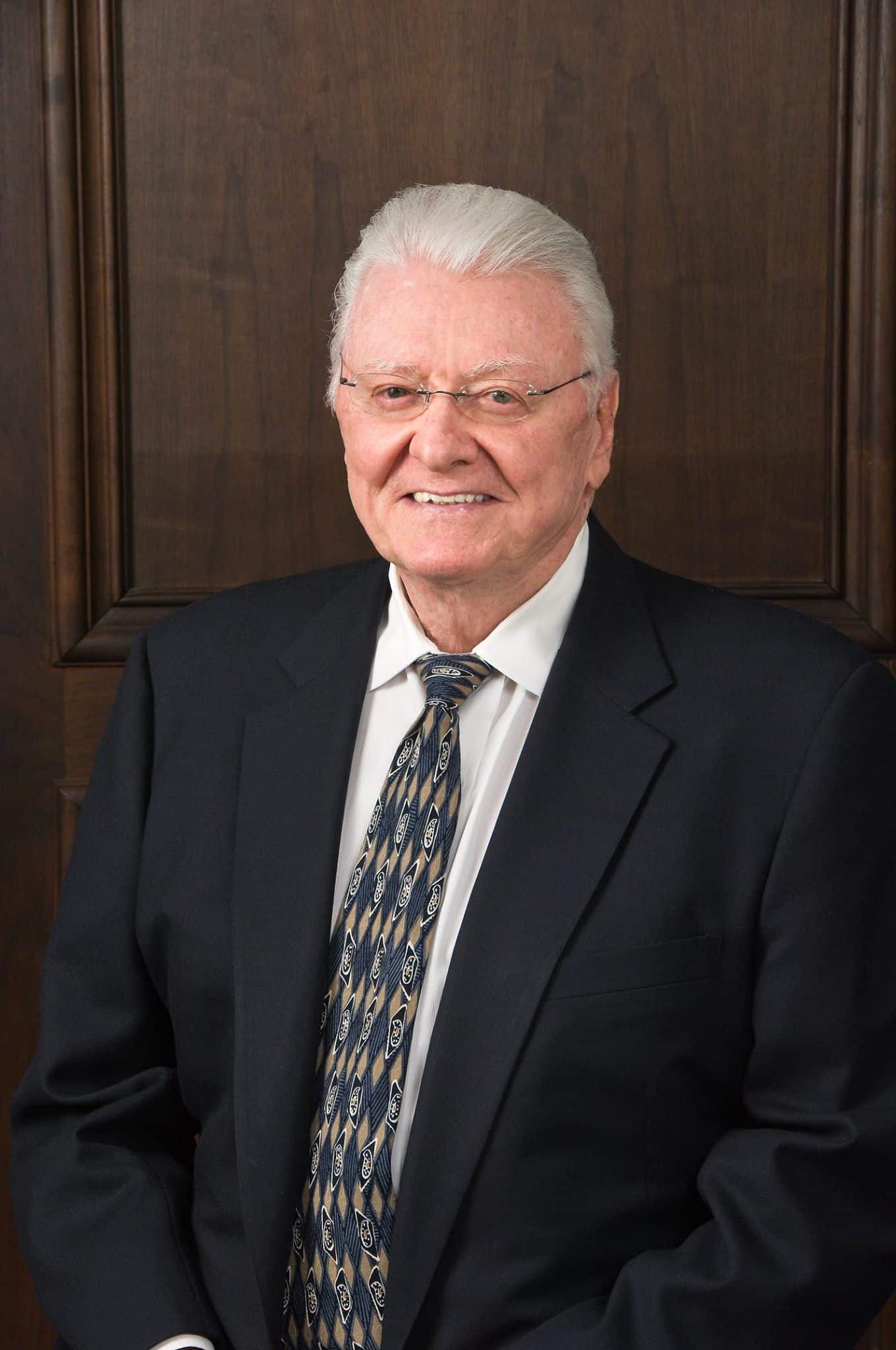
Weber and four partners found the affordable land that they needed on the western outskirts of downtown Tulsa in Sand Springs. His partners contributed $10,000 each, and they started the business with $40,000. “That’s all the money we had,” he notes. That is until the partners secured a credit line, which helped the company survive in the early days. “I never realized in the past how important it was that you have a reputation,” he says. “Your reputation will carry you over where people shouldn’t give you a chance probably, but they do. What you have to do is say what you’re going to do, and then do it. Do that once or twice, and the doubts dissipate.” Do it many times, and you begin to build a business respected around the country. Despite building a business from nothing and withstanding competition from day one, Weber is a modest man and much more comfortable downplaying his own role in the early days. “The only thing I can figure out is that we are lucky as hell,” he laughs. “We made moves just ahead of the wolves. The wolves would come after us, and we would jump ahead.” Although some good fortune was certainly in play, he and his colleagues were also strategic thinkers.

“We branched out,” he says. “We expanded our product range. We looked for opportunities where the whole rest of the country – except the Northeast – was dependent on production from the Northeast. We knocked weeks off the delivery of steel. We uncomplicated the delivery. We could take an inquiry, produce the product, ship the product, and invoice the product before they could even answer the inquiry.” Notice the “we” over “me” theme? The team approach paid off as Webco continued to grow and prosper through its first and second decades in the metals business. “The trouble with most companies is you take a look at their organization chart, and what you have is top level down ― it’s a pyramid. Things filter down, and if they get blocked somewhere along the way, so be it.’ I said, ‘In my opinion, it’s totally wrong. Information has to flow from the bottom up. Because you should be measured on how effective you make the people working for you, not the other way around.’ So, that’s where our inverted pyramid came from” Weber felt the odds of success were better if people were empowered to make the decisions, even if some of them turned out to be wrong. Ultimately, this strategy morphed into the foundation of what are now Webco’s 16 Principles, a set of guiding values that has proven instrumental in the company’s growth to more than 1400 employees working in 12 facilities in five states. The cornerstone that holds all of this together and keeps the company on course is trust, according to Weber. “I have a philosophy that I can do amazing things if I trust you,” he shares. “If I don’t trust you, I’m cut in half, at best. Now, I have to worry about what your thoughts are and stop you from going off the rails. That’s a lost effort. If you know what your job is or what you’re expected to do, I should get the hell out of your way and let you do it! If you don’t know how to do it, I should put you in a position where you’ll be trained or educated or whatever it is, and then get the hell out of your road. If you have a job, we try to give you the responsibility to manage that job. You can manage this, and if you can’t, no one can. But if you have small segments of responsibility, and you put them into action, that’s a matrix, and that works.” Weber and his leadership team have used the 16 Principles as a foundation for the company’s culture, which not only motivates employees to trust one another but often earns their loyalty and welds them to the company long-term. He backs that up by pointing out there are a number of long-term Webco employees. This is remarkable in a country where some studies report growing numbers of employees who are disengaged at work. “There is no one here that is treated as a piece of furniture,” emphasizes Weber. “They’ve all got an important part to play.” But he’s also a realist and knows that not everyone will be the perfect fit at this fast-paced, ever-evolving manufacturing business. “If we have people who do not care, we try not to keep them,” he notes. “If you don’t care about being here, it’s okay. We understand that. There are other places you can work, but not here. If you want to be a part of something special, that’s a different story.” That doesn’t mean that Weber demands perfection from his employees, but he has always believed that everyone needs to be forthright and own up to problems. “I can handle mistakes,” he explains. “What I can’t handle is not knowing. Let me give you an example of that. We were a young company in the heat exchanger business only. That was the only market we had. We made long tubes for feed water heaters. Now, these tubes are anywhere from 60 feet to 100 and some feet in length. We had an order of about 100,000 feet total. We had no automation in those days. It was all by hand. You put the end of a tape measurer here, and you draw out 100 feet, and you cut.” But one employee was slightly off the mark, missing by a foot, and cutting the tubes in 99-foot lengths. “That cost us hundreds of thousands of dollars,” he sighs. After the mistake, all the fledging operation had left was a very expensive pile of scrap. “The guy thought I was going to fire him,” remembers Weber. “I called him into the office, and we sat down and talked about it. I said ‘I’m not going to fire you, I can’t afford to. You’ve got a 100-foot versus 99-foot lesson. I don’t think you’ll do that again. Make sure you hold that damn tape measure on the end that you’re sure somebody is measuring 100 feet from. My point being is that people make mistakes. If you think that you’re going to get away with no mistakes being made, you’re crazy as hell. Good people make mistakes. And if they’re the right people, they’ve been given the confidence of management to support them. They’ll be the best that you have because they’ve already seen what can happen and what would happen if they do.” There are more success stories than failures here at Webco. They number more than the company’s iconic founder can recount. So he starts to recognize a long list of employees and their contributions to Webco, only to realize that is futile as well. There are just too many names and extraordinary achievements than he has time and energy to cover today. Instead, he focuses on the relatively recent addition of the Jeffrey Watt Williams Center for Manufacturing Excellence, a facility that opened at the Star Center Tube Complex. Weber mentions that a community services facility had been housed on the land that the Star Center Complex was built. It had been shuttered and was withering away for more than a decade. Webco bought the large piece of property and began turning it into a manufacturing facility that would provide jobs in the community and solutions to the company’s customers. “We spent over $60 million bringing this dream to fruition,” he reports. He is proud of the accomplishment, and of course, gives full credit to the team of employees who pulled it all together, including the late Jeffrey Williams. It’s rare enough to find someone on this planet with almost ten decades’ experience, let alone a guy who is still at work imparting this kind of wisdom to anyone wise enough to listen, while 99.9% of his remaining peers are deservedly taking it easy and quietly riding out their twilight years. “I keep working only because I love it,” he nearly whispers, having told enough stories this afternoon that his voice is wearing thin. “I always thought ‘Hey, I could do this,’ and I didn’t realize how hard it would be when I started. But I wanted to do it a different way.” They say that nothing good ever comes easy, so it’s hard to imagine all that it took for Webco to become truly “great.” Weber never imagined that his idea to “do this better” would turn into such a successful enterprise with such a positive effect on so many lives. True to form, he refuses to take credit. “Probably the greatest strength I had was the support of my family,” his eyes tear up. “They trusted me. There’s that word again – trust.” These days Bill still comes into work when he can, but he has entrusted the business that he launched to his middle daughter Dana Weber. Webco’s second CEO and President keeps an office just across the Executive Assistant’s workspace from her father. When both are at headquarters, they talk business, but the mantle has clearly been passed. “She is brilliant!” he beams. “Now she runs the company, and I’m an employee,” Weber adds that while Dana is in charge of the business, she plays other roles in Oklahoma, including serving on the Federal Reserve Bank of Kansas City’s Oklahoma City Branch Board of Director. As Webco reaches its golden anniversary, Weber says that there will be time to celebrate, but with an eye on the horizon. He believes that there is no reason that the company he founded 50 years ago can’t continue to prosper and grow even stronger on the way to its 75th and 100th anniversaries. “You’ve got to keep on, keepin’ on!” urges the 92-year-old. “It’s amazing what people are capable of when they are committed. For instance, we have people coming out of Oklahoma State University and other state universities, and they’re a wonderful resource for talent. We don’t know what we don’t know.” They are bringing in fresh perspectives and new ideas while learning on the job. “My own opinion is that if you know how to do it better, you do it better,” he continues. “Better means that you can improve the performance of a product you’re selling. If you can improve the performance of a product you’re selling, and you don’t do it, you’re crazy as hell. Always be at the head of the class. I think that will keep you in the lead or near the lead. Oh, and by the way, you’ve got to be willing to put your money where your mouth is. You’ve got to be able to take risks. “We look back, and we’ve amazed ourselves at what we’ve accomplished. It wasn’t one person, it wasn’t one organization, it wasn’t one thing. It was a collected multitude of decisions that were made – some have good results, some not so good. But, we’re here.” Now what was once a small start-up that survived on its resourcefulness and a little luck has become North America’s leading manufacturer of welded tubing with a mission to become a “forever company”. Fifty years later, that endlessly retreating goal line is only on the horizon because an industrious man and his team of dedicated employees made a tube and a pipe dream come true. As the visiting journalist leaves the warm office, petting Sabrina along the way, he thanks Weber for teaching him a few things: old dogs can learn new tricks. “If I taught you anything, you’re in trouble,” he chuckles, then volunteers one last pearl, “Remember, wherever you are, the best is always ahead of you.”




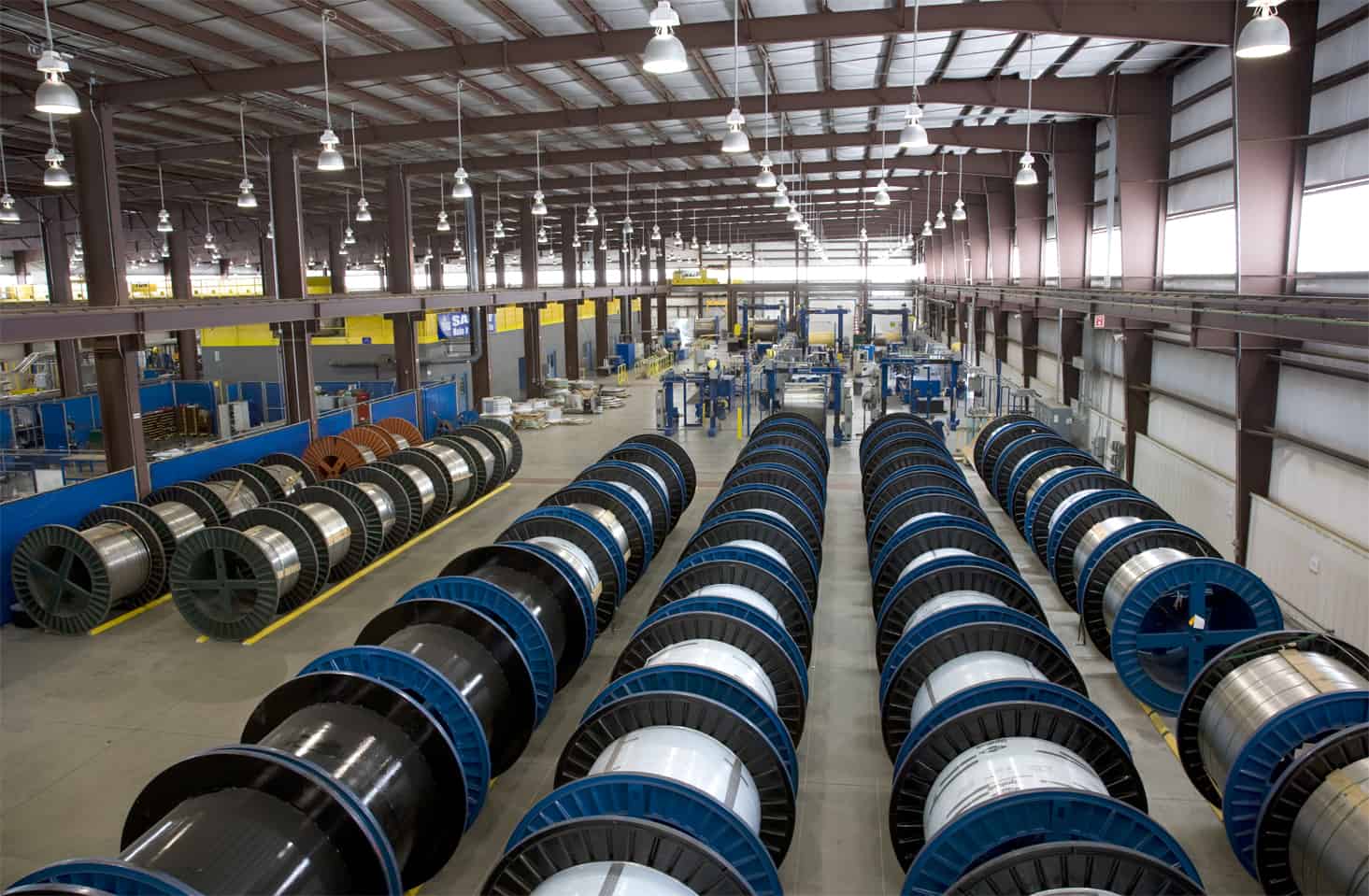
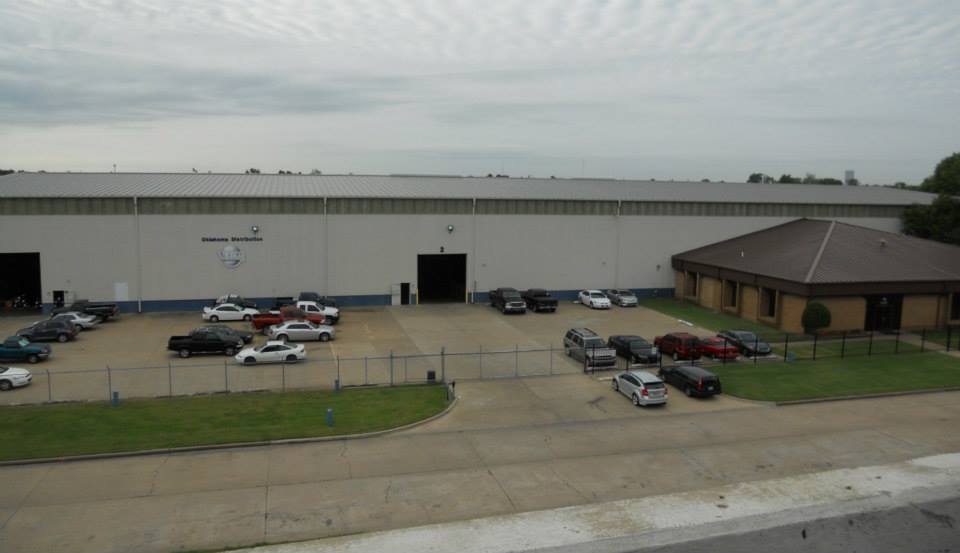


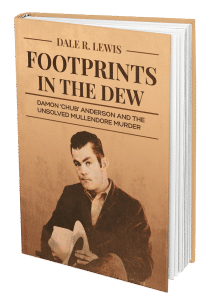


0 Comments